Tuesday 27 July 2021 10:23am
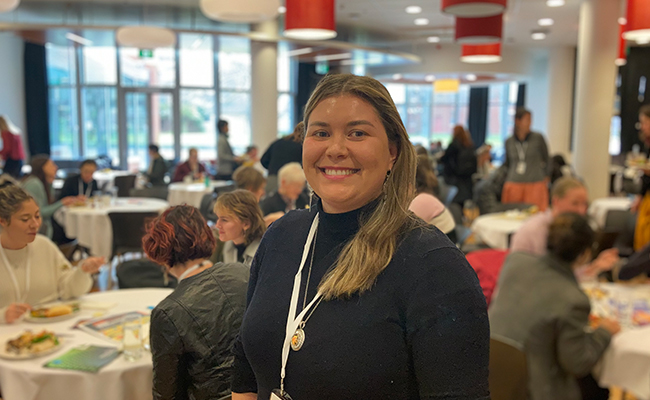
Dr Carolina Loch, Senior Lecturer Department of Oral Sciences, The University of Otago. AWIS2021 Conference Chair.
The University of Otago hosted this year’s Association for Women in the Sciences Conference (AWIS2021) on 8-9 July.
Held every three years, this is an opportunity for women studying, teaching, or working in the sciences across Aotearoa New Zealand to come together and listen to speakers, attend workshops and network.
The conference theme was embracing diversity in the sciences. Topics covered included sustainability and climate change, navigating unconscious bias, mentoring and leadership and cultural and career diversity.
Key-note speakers were Professor Dame Juliet Gerrard, the Prime Minister’s Chief Science Advisor who spoke on NZ’s response to COVID-19 from the lens of a woman in science, and Professor Tanya Smith from the Australian Research Centre for Human Evolution at Griffith University, who spoke on ‘Resilience in Research and in Life’. The 150 attendees were from private companies, Crown Research Institutes, academic staff and postgraduate students.
Some of the attendees share what they valued about the conference:
Dr Carolina Loch, Senior Lecturer Department of Oral Sciences, University of Otago. .
“It’s a great opportunity for women working and studying in the sciences around the country to get together to network to share some of their achievements, of the difficulties and issues they have faced. An opportunity for connection. Living as we are with COVID we are scattered all over the place and many of us are unable to travel for conferences, so it’s a great opportunity for us to get together.”
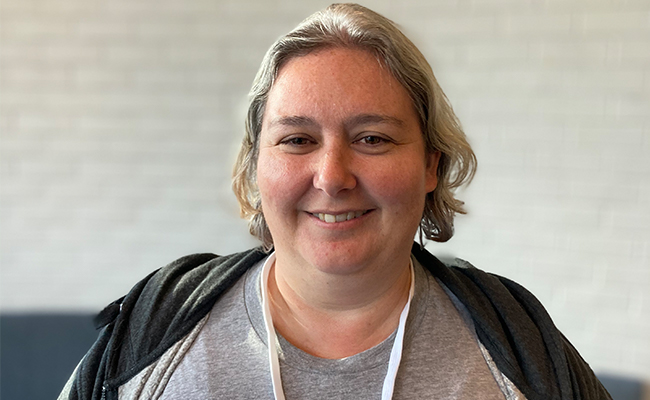
Emma Timewell, Communications Manager, Plant & Food Research and the National Convenor of AWIS.
“Unlike science conferences thinking about our work, this is time to think about yourself as a person. It’s an opportunity for women at different stages of their careers to learn what a career in science could look like.”
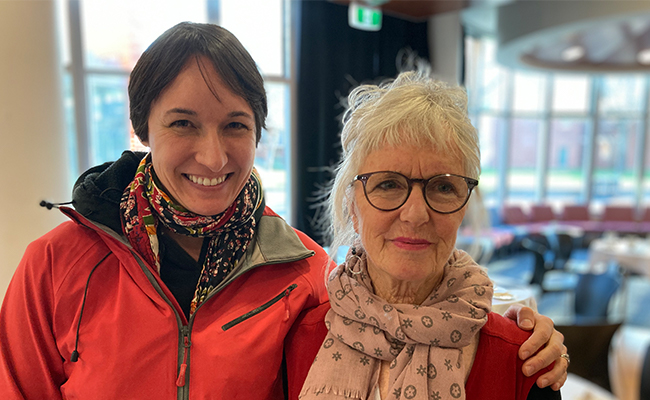
Diane Tracey, Deep Sea Ecologist, NIWA on right. She is pictured with Colleague Pascale Otis, Communications Lead - Ocean Science, NIWA.
“I’ve been participating in this for a while, and while the issues and the message is the same it’s interesting to see the voices and actions change. These issues are being articulated differently and so are the tips and techniques to call out behaviours and culture that need to change.”
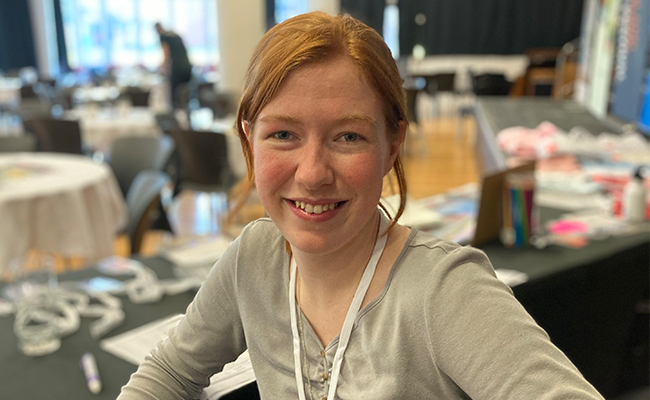
Lauren Gadd, University of Otago second-year Chemistry student and conference volunteer.
“It’s been an amazing and positive and optimistic chance for women to connect with each other.”
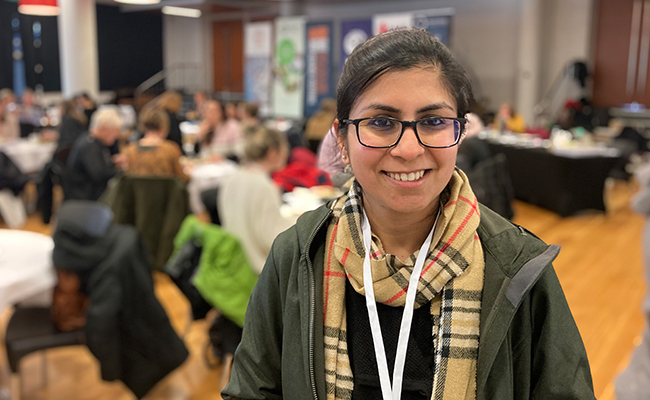
Harpreet Kaur, Plant & Food Research.
“It’s good to see the diversity, especially in terms of women in science. And how women are doing in science. They are not less than men, that’s the best part. It’s good to see women happily doing science.”
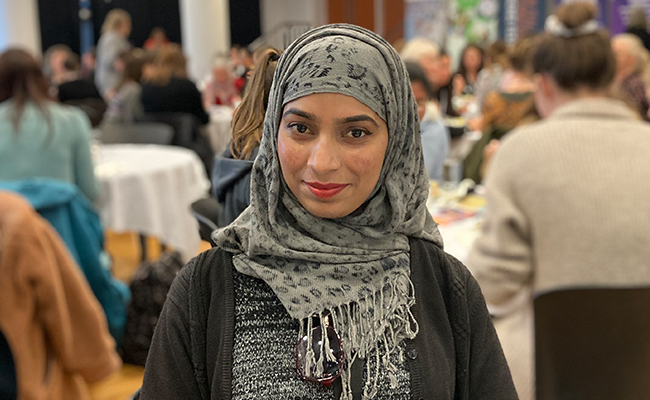
Farzana Kousar, PhD candidate, the Department of Chemistry, University of Otago.
“When I heard about this conference, and that it’s a woman thing, I was interested to see how we can share about science, our ideas and diversity. I’ve learned so many things in these two days and I’m so confident and happy about it that I joined this conference.”
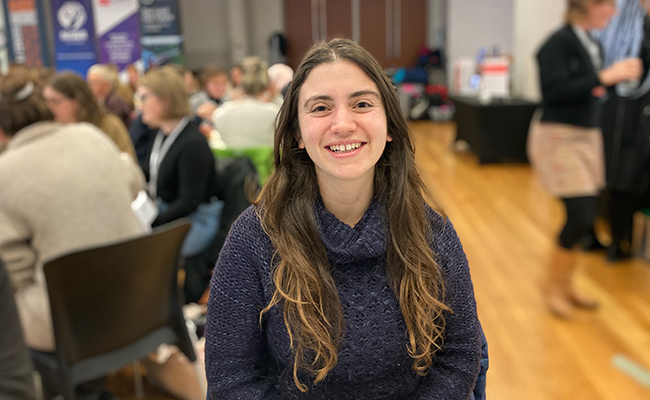
Jessica Schattschneider, scientist at Cawthron Institute.
I’ve been in New Zealand for two years. When I heard about this conference, I thought I really need to go because I think that being a woman and working in science, in an environment that was male dominated it’s important to find allies and understand we are not alone. To hear stories about how women feel, and their careers. Being early in my career it’s really important to have these connections and think about what type of professional I want to be and the people I want to be surrounded with.”
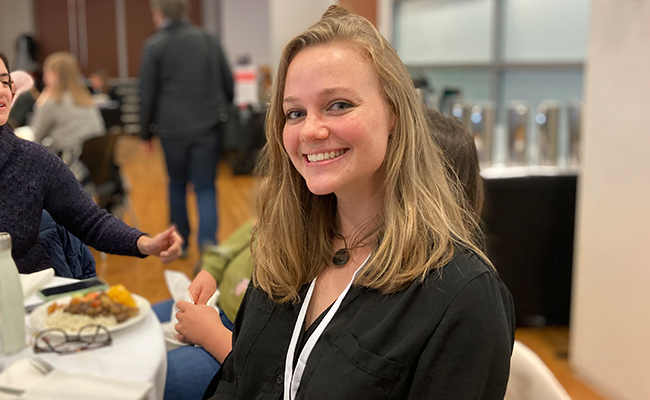
Pascale Lubbe, PhD candidate, University of Otago.
“I’m also in third year, which is a hectic year. I didn’t know about AWIS at all until this conference was coming here. It has been so valuable to be with other women, because all of my supervisors are men and they’re lovely and I am learning a lot from them, but I didn’t realise until yesterday really how important strong female mentors are in your growth and your future. When you’re an undergrad maybe it doesn’t matter quite so much but as you advance further and further into a career you need somebody who is like ‘I understand, here are some obstacles, here’s what you do to combat them.’ It’s been really inspiring to see other people achieve so much against a system that consistently tries to put them down.”
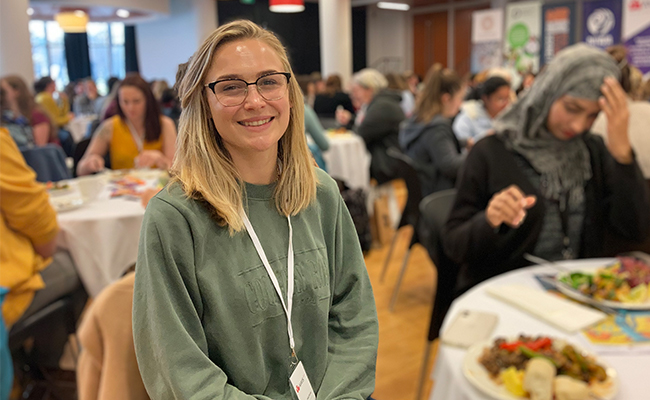
Alice Harford, PhD in Marine Science and Physiology, University of Auckland.
“I was also sponsored to be here, which is absolutely incredible. I think it’s just been so incredible to meet like-minded people going through similar obstacles and having similar career trajectories and concerns and being able to bond with one another and form a community of strong like-minded women moving through this very male-dominated field. Seeing the importance of having women mentors and someone you can relate to and understand your struggles. It’s just been fantastic.”